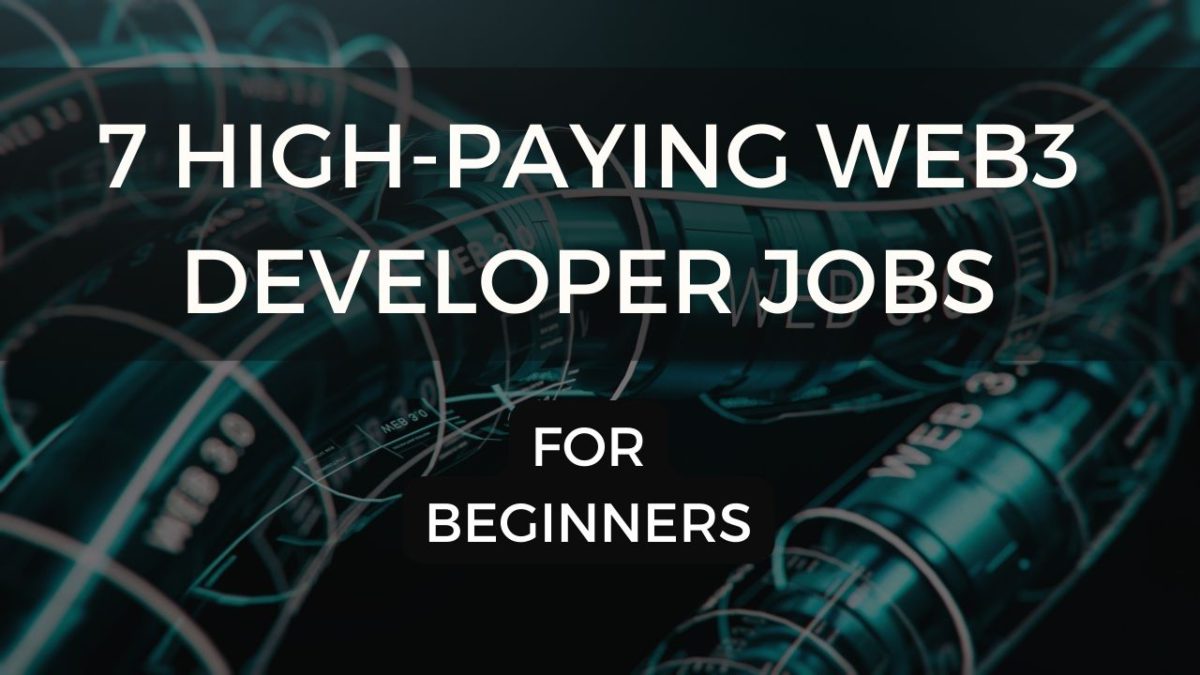Key Trends in Blockchain Developer Salary Shaping The Talent Pool in Web 3
Blockchain developer salaries are a hot topic these days, especially with the rapid growth in the Web3 space. As companies scramble to hire the best talent, understanding how salaries are shaping up is key. From entry-level to senior roles, and across different regions, the pay varies quite a bit. And it’s not just about experience; emerging technologies and even cultural shifts are playing a role. This article dives into these trends, giving you a clearer picture of what to expect if you’re in the market for blockchain talent or looking to jump into this field.
Key Takeaways
- Blockchain developer salaries are influenced by experience, location, and industry demand.
- Entry-level positions can start at $70,000, while seasoned pros might earn over $250,000.
- Emerging tech like DeFi and AI integration is pushing salaries higher.
- Remote work is changing how companies compensate developers, broadening the talent pool.
- Cultural shifts show a preference for freelance work and token-based payments.
Understanding Blockchain Developer Salary Trends
Current Salary Ranges for Blockchain Developers
In 2024, blockchain developers are seeing a wide range of salaries. Entry-level positions typically offer between $70,000 and $90,000 annually, while experienced professionals can earn upwards of $250,000. The average salary across different roles and experience levels is around $145,600, with a median salary of $104,553 A Blockchain Developer’s estimated total pay.
Factors Influencing Salary Variations
Several factors contribute to the variation in salaries for blockchain developers:
- Experience and Expertise: Developers with specialized skills in areas like blockchain architecture or platforms such as Ethereum often command higher salaries.
- Education and Certifications: Advanced degrees and relevant certifications can significantly boost earning potential.
- Industry and Company Size: Industries like finance, which require robust security measures, tend to offer higher salaries. Meanwhile, startups might offer equity or tokens as part of the compensation package, which can affect the base salary.
Regional Differences in Compensation
Geographic location plays a crucial role in salary differences. Here’s a quick look at some regional salary averages:
- North America: In the U.S., salaries range from $110,000 to $160,000, while in Canada, they range from $90,000 to $130,000.
- Europe: In the UK, blockchain developers earn between $80,000 and $130,000. In Germany, it’s $85,000 to $125,000, while Switzerland offers $100,000 to $150,000.
- Asia: Singapore’s salaries range from $70,000 to $120,000, and in Hong Kong, it’s $80,000 to $130,000. Meanwhile, India offers lower salaries, ranging from $30,000 to $70,000.
- Australia: Here, salaries average between $90,000 and $140,000.
The blockchain industry is still evolving, and salary trends are likely to shift as new technologies and market demands emerge. Keeping an eye on these trends can help developers and employers navigate the competitive landscape effectively.
The Impact of Experience on Salary
Entry-Level Salary Expectations
Starting out as a blockchain developer, you might expect to earn between $70,000 and $90,000 annually. These figures can vary depending on your location and the specific demands of the industry. Entry-level developers often focus on learning the ropes, gaining hands-on experience with blockchain protocols, and developing smart contracts. It’s a time to build foundational skills that will pay off in the long run.
Mid-Level Developer Compensation
Once you’ve got a few years under your belt, say two to five, your salary could jump to the $100,000 to $130,000 range. Mid-level developers usually have a stronger grasp of blockchain technology and can handle more complex projects. They might lead small teams or take charge of significant components of a project. At this stage, your ability to solve problems and innovate becomes more critical, often reflected in your paycheck.
Senior Developer Earnings
For those seasoned pros with over five years of experience, salaries can soar to between $130,000 and $180,000. Senior developers are expected to mentor juniors, lead large-scale projects, and make strategic decisions. Their deep understanding of blockchain’s intricacies makes them invaluable. In some cases, particularly in high-demand sectors like Decentralized Finance, salaries might even exceed this range, reflecting the premium placed on expertise and leadership.
Experience in blockchain development not only enhances your technical skills but also significantly boosts your earning potential. As you climb the professional ladder, the complexity and impact of your work grow, and so does your value in the market.
Emerging Technologies and Their Influence on Salaries
The Rise of Decentralized Finance
Decentralized Finance, or DeFi, is shaking up the financial world, and with it, the demand for skilled blockchain developers is skyrocketing. Developers who can create and manage smart contracts are particularly in demand, as these contracts are the backbone of DeFi projects. Skills in Solidity, the programming language for Ethereum, are especially sought after. As DeFi continues to grow, developers who can navigate this landscape will find themselves in a position to command higher salaries.
Blockchain Integration with AI and IoT
The intersection of blockchain with Artificial Intelligence (AI) and the Internet of Things (IoT) is opening new frontiers. Companies are eager to integrate these technologies to enhance security, efficiency, and data integrity. Developers who can bridge these technologies are rare and, as such, are highly compensated. The ability to ensure seamless integration between blockchain systems and AI or IoT devices is a prized skill set in today’s tech market.
Smart Contract Development Trends
Smart contracts are not just for DeFi; they are becoming integral to various industries, including supply chain management, real estate, and healthcare. The demand for developers who can write secure, efficient smart contracts is escalating. As more sectors realize the potential of blockchain, the need for specialized developers grows. Those who can stay ahead of the trends in smart contract development will find themselves at the forefront of the blockchain revolution.
As blockchain technology evolves, so does the landscape of opportunities for developers. The integration of blockchain with other cutting-edge technologies is not just a trend but a significant shift that is reshaping how businesses operate and innovate. The future looks bright for those ready to embrace these changes.
Recruitment Strategies for Blockchain Talent
Effective Platforms for Finding Developers
Finding the right talent in the blockchain space isn’t just about posting a job and waiting for applications. It’s about knowing where to look and how to connect with the right people. Platforms like GitHub and Stack Overflow are gold mines for discovering developers who are actively contributing to blockchain projects. These platforms allow you to see their work firsthand, giving you a real sense of their skills and expertise. Additionally, specialized blockchain communities and forums are vibrant spaces where developers gather to share insights and opportunities. Engaging with these communities can lead you to talent that is not only skilled but also deeply passionate about blockchain technology.
Innovative Compensation Packages
In the competitive world of blockchain development, offering attractive compensation is key to attracting top talent. But it’s not just about high salaries. Innovative compensation packages might include token-based bonuses, equity stakes in projects, or flexible working arrangements that appeal to the modern developer’s desire for autonomy. Companies are also exploring decentralized payment methods using smart contracts, which can automate and secure transactions, adding an extra layer of appeal for tech-savvy developers.
Building a Community-Driven Talent Pool
Creating a community-driven talent pool involves more than just hiring; it’s about building relationships and fostering a sense of belonging. Companies that succeed in this space often support open-source projects, sponsor hackathons, and participate in blockchain meetups. These efforts help build a network of potential hires who are already familiar with your brand and culture. Moreover, by contributing to the community, you demonstrate a commitment to the blockchain ecosystem, which can make your company more attractive to developers who value these principles.
The blockchain recruitment landscape is rapidly evolving, with traditional methods falling short. Embracing community engagement and innovative compensation strategies is not just beneficial but essential for attracting the best talent in the industry.
The Role of Education and Certifications
Importance of Specialized Training
Blockchain is a tricky field. It’s not just about knowing how to code; it’s about understanding a whole new way of thinking about data and trust. Specialized training programs, often offered by universities or tech institutes, are popping up everywhere. These programs focus on the unique aspects of blockchain technology, from cryptographic principles to smart contract development. Getting a solid education in these areas can set you apart from the competition.
Impact of Advanced Degrees on Salary
Having an advanced degree in computer science or a related field can significantly boost your earning potential in the blockchain industry. Employers tend to value the deep understanding and research skills that come with a master’s or Ph.D. These degrees often lead to higher-level positions and, consequently, higher pay.
Here’s a simple breakdown:
| Education Level | Potential Salary Increase |
|---|---|
| Bachelor’s Degree | Base Salary |
| Master’s Degree | +15% |
| Ph.D. | +30% |
Certifications That Boost Earning Potential
Certifications are another way to prove your skills and knowledge in the blockchain space. They show that you have a verified understanding of blockchain technologies and can apply them in real-world scenarios. Some popular certifications include:
- Certified Blockchain Developer
- Ethereum Developer Certification
- Certified Blockchain Solution Architect
These certifications can make you more attractive to employers and might even lead to a higher salary offer. Blockchain developers earn competitive salaries between $102,185 and $145,913 annually, driven by high demand for their skills.
Education and certifications in blockchain are more than just pieces of paper. They’re a testament to your commitment to mastering this complex technology and can open doors to exciting career opportunities.
Future Trends in Blockchain Developer Salaries
Predictions for Salary Growth
Blockchain developer salaries are expected to see some wild swings in the coming year. By November 2024, salaries could hit around $160,000, but by September, they might peak at $278,000. This fluctuation shows just how dynamic the blockchain job market is. As more industries get into blockchain tech, the demand for skilled developers will likely push salaries up even more.
The Influence of Remote Work on Compensation
Remote work is changing the game for blockchain developers. With the ability to work from anywhere, companies now have access to a global talent pool. This could even out salary differences across regions. But, it also means that developers might have to compete with talent from all over the world, which could keep salaries from skyrocketing in some areas.
Evolving Job Roles in Blockchain Development
Blockchain isn’t just about cryptocurrencies anymore. As the technology grows, so do the roles within the field. Developers might find themselves working on projects involving AI, IoT, or even traditional finance systems. This evolution could lead to new job titles and responsibilities, which might come with higher paychecks. As these roles become more specialized, expect salaries to reflect the demand for niche skills.
As blockchain technology continues to evolve, the roles and compensation for developers will likely shift, reflecting broader trends in technology and business integration.
Cultural Shifts in the Blockchain Workforce
The Developer Mindset in Web3
Blockchain developers today are more than just coders; they’re advocates for digital independence. These folks aren’t just in it for the money. They’re driven by a passion for decentralization and innovation. Many have been part of the crypto world for years, often running their own nodes and participating actively in diverse crypto recruitment communities. Their mindset is shaped by a strong preference for autonomy, token-based rewards, and involvement in decentralized autonomous organizations (DAOs).
Preference for Token-Based Compensation
The traditional salary model is losing its charm in the blockchain space. Developers increasingly favor compensation packages that include tokens, which not only offer potential financial growth but also a stake in the projects they work on. This shift reflects a broader trend towards more flexible and innovative compensation strategies, aligning financial interests directly with project success.
The Shift Towards Freelance Opportunities
The allure of freelance work is strong among blockchain developers. With the ability to work remotely and the high demand for their skills, many are opting out of the traditional 9-to-5 grind. This shift allows them to choose projects that align with their personal and professional goals, fostering a more dynamic and self-directed career path.
The blockchain workforce is redefining what it means to work in tech. As developers prioritize flexibility and meaningful engagement over traditional employment structures, companies must adapt to these cultural shifts to attract and retain top talent.
Conclusion
So, there you have it. Blockchain developer salaries are on the rise, and it’s no wonder why. With the tech world buzzing about Web3, companies are scrambling to snag the best talent. Entry-level folks are seeing decent paychecks, while seasoned pros are raking in the big bucks. But it’s not just about the money. The whole landscape is shifting with remote work and freelance gigs becoming the norm. Developers are calling the shots, picking projects that align with their vision of a decentralized future. It’s an exciting time to be in the blockchain space, and if you’re thinking about jumping in, now’s the time. Keep an eye on those trends, because they’re shaping the future of work in ways we couldn’t have imagined just a few years ago.
Frequently Asked Questions
What is the average salary for a blockchain developer in 2024?
In 2024, blockchain developers can earn between $70,000 and $250,000 per year, depending on experience and location.
How does experience affect blockchain developer salaries?
Entry-level developers earn around $70,000 to $90,000, while senior developers can make over $250,000 annually.
What factors influence blockchain developer salaries?
Salaries are influenced by experience, education, location, and industry demand.
How do regional differences impact blockchain developer pay?
Salaries vary by region, with North America and Europe generally offering higher pay compared to other areas.
What skills are important for a blockchain developer?
Key skills include problem-solving, effective communication, adaptability, and teamwork.
What are some emerging trends in blockchain developer jobs?
Trends include the rise of decentralized finance, integration with AI and IoT, and a shift towards freelance work.
Stay informed with daily updates from Blockchain Magazine on Google News. Click here to follow us and mark as favorite: [Blockchain Magazine on Google News].
Get Blockchain Insights In Inbox
Stay ahead of the curve with expert analysis and market updates.
latest from tech
Disclaimer: Any post shared by a third-party agency are sponsored and Blockchain Magazine has no views on any such posts. The views and opinions expressed in this post are those of the clients and do not necessarily reflect the official policy or position of Blockchain Magazine. The information provided in this post is for informational purposes only and should not be considered as financial, investment, or professional advice. Blockchain Magazine does not endorse or promote any specific products, services, or companies mentioned in this posts. Readers are encouraged to conduct their own research and consult with a qualified professional before making any financial decisions. The featured image used is just a creative depiction of the title and it does not intend to hurt sentiments of any person or institution. If it hurts anyone sentiments, please do not hesitate to reach out to Blockchain Magazine.

 Bitcoin
Bitcoin  Ethereum
Ethereum  XRP
XRP  Tether
Tether  Solana
Solana  USDC
USDC  Dogecoin
Dogecoin  Cardano
Cardano  Lido Staked Ether
Lido Staked Ether  TRON
TRON  Wrapped Bitcoin
Wrapped Bitcoin  Chainlink
Chainlink  Wrapped stETH
Wrapped stETH  Avalanche
Avalanche  Sui
Sui  Stellar
Stellar  Litecoin
Litecoin  Toncoin
Toncoin  Shiba Inu
Shiba Inu  LEO Token
LEO Token  Hedera
Hedera  MANTRA
MANTRA  USDS
USDS  Hyperliquid
Hyperliquid  Polkadot
Polkadot  WETH
WETH  Bitcoin Cash
Bitcoin Cash  Bitget Token
Bitget Token  Ethena USDe
Ethena USDe  Wrapped eETH
Wrapped eETH  Uniswap
Uniswap  Monero
Monero  NEAR Protocol
NEAR Protocol  Pepe
Pepe  WhiteBIT Coin
WhiteBIT Coin  Aave
Aave  Ondo
Ondo  Bittensor
Bittensor  Aptos
Aptos  Internet Computer
Internet Computer  Dai
Dai  Official Trump
Official Trump  Ethereum Classic
Ethereum Classic  Mantle
Mantle  Tokenize Xchange
Tokenize Xchange  OKB
OKB  Gate
Gate  sUSDS
sUSDS  Coinbase Wrapped BTC
Coinbase Wrapped BTC 






